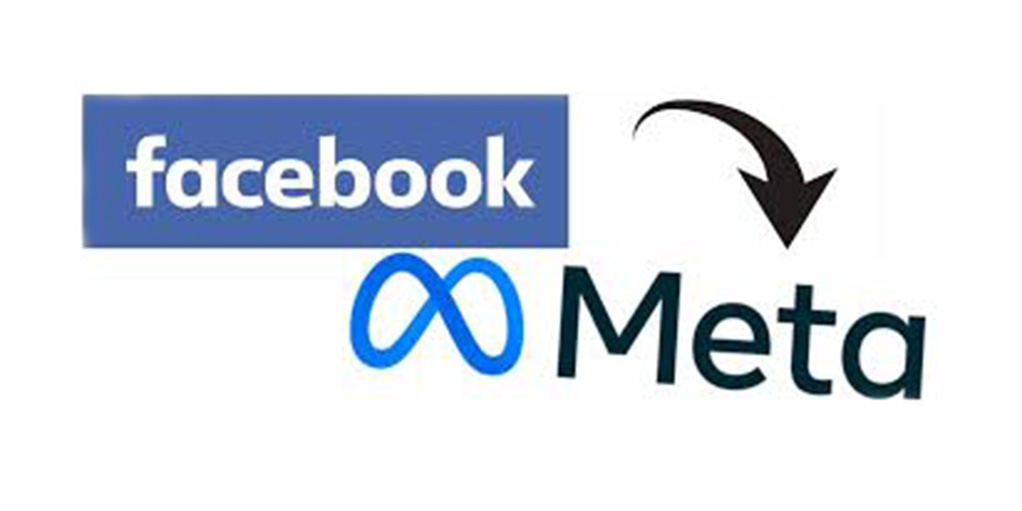Facebook Inc. made a momentous announcement in October 2021 that would pave the way for the next phase of its development: a rebranding to Meta Platforms Inc., or just Meta. This strategic move was more than just a name change; it signaled a shift in the company’s long-term vision, focusing on the metaverse, a virtual and augmented reality space that aims to revolutionize the way we interact, work, and socialize online. This blog takes a deep dive into the evolution of Meta, its reasons for rebranding, and what this transformation means for the future of digital interaction and business.
The Origin of Facebook: Building a Social Media Giant
Before diving into Meta, it’s essential to understand Facebook’s origins. Launched in 2004 by Mark Zuckerberg and his college roommates, Facebook began as a social networking platform for university students. The company quickly gained popularity, expanding beyond campuses and eventually becoming a global social media powerhouse. By the 2010s, Facebook was no longer just a platform; it was an ecosystem encompassing several high-profile acquisitions, including Instagram, WhatsApp, and Oculus VR.
Facebook’s rapid expansion was driven by its mission to connect people across the globe, and by 2020, it had more than 2.8 billion active users. Facebook was coming under more and more fire for monopolistic practices, false information, and privacy concerns in spite of its expansion and profitability. As these difficulties grew, Zuckerberg and his group started to reconsider the company’s future course, which finally resulted in the creation of Meta.
The Decision to Rebrand: Why Meta?
The decision to rebrand Facebook to Meta wasn’t taken lightly. Several driving factors contributed to this move:
- Shifting Focus from Social Media to the Metaverse
The rebrand was a clear indication that Meta no longer wanted to be seen solely as a social media company. Facebook’s legacy is deeply rooted in connecting people, but the company wanted to expand beyond that. As augmented reality (AR) and virtual reality (VR) advanced quickly, Meta concentrated on creating the metaverse. In this interconnected digital world, users can engage in immersive experiences using avatars, VR headsets, and AR devices.
In his announcement, Zuckerberg explained that the company’s current products, including Facebook, Instagram, and WhatsApp, would remain central to the business. However, the new focus would be on creating a virtual universe that enables deeper connections and allows for new types of online experiences, such as virtual events, workplaces, and even virtual economies.
- Addressing Brand Perception
By 2021, Facebook’s reputation had taken significant hits due to a series of scandals related to data privacy, misinformation, and the platform’s handling of political content. The rebrand to Meta offered a clean slate and a way for the company to distance itself from these controversies while focusing on innovation and future technologies.
The rebranding was not merely about PR or optics—it was a strategic move to demonstrate that the company was about more than social networking. Meta’s leadership wanted the world to see it as a forward-thinking tech giant, leading the way in creating the next iteration of the internet.
- Capitalizing on the Growing Virtual Reality (VR) Market
With the acquisition of Oculus VR in 2014, Facebook had already made its foray into virtual reality. As Meta, the company is doubling down on this investment. The global VR and AR markets are expected to grow exponentially in the coming years, and Meta is positioning itself as a major player in these spaces. The Oculus Quest headset, now known as the Meta Quest, has been a significant success, offering users a more accessible entry point into VR.
By transitioning to Meta, the company signals its intent to dominate the virtual reality market and lead the way in developing the tools, software, and platforms necessary to build a fully realized metaverse.
The Metaverse: What is It, and Why Does It Matter?
The metaverse is often described as a virtual universe where users can interact with each other and digital environments in a seamless, immersive way. It incorporates technologies such as virtual reality (VR), augmented reality (AR), and artificial intelligence (AI) to create a blended digital-physical world. Users can attend virtual events, shop, work, socialize, and play in these spaces, with the ultimate goal of creating a fully immersive digital experience that mirrors real-life interactions.
Meta’s vision for the metaverse extends far beyond gaming or entertainment. Zuckerberg envisions a future where the metaverse replaces many functions of the current internet, allowing users to:
- Collaborate remotely in virtual offices: The metaverse will enable businesses to conduct meetings and collaborate in virtual environments, creating a more interactive experience than current video conferencing tools.
- Attend virtual events and experiences: From concerts to conferences, the metaverse will allow people to gather in digital spaces and share experiences without geographical constraints.
- Create and own digital assets: Through the use of blockchain technology and NFTs (non-fungible tokens), users will be able to buy, sell, and trade virtual goods and assets within the metaverse, creating entirely new economies.
This vision of the metaverse is still in its early stages, but Meta is investing billions into research, development, and partnerships to bring it to life. With its vast resources and experience in social networking, Meta has the potential to become a central player in this next phase of the internet.
Challenges Facing Meta’s Metaverse Vision
While the rebranding and shift to the metaverse come with a lot of potential, Meta faces several challenges as it attempts to bring this vision to life:
- Technological Hurdles
Creating a fully immersive, seamless metaverse is no small feat. It will require advancements in VR and AR technology, as well as improved internet infrastructure, to support the high-bandwidth demands of these immersive experiences. Meta is investing heavily in research and development, but it will take time for these technologies to become mainstream.
- User Adoption
Convincing the public to embrace the metaverse will also be a challenge. While VR gaming and social platforms are gaining popularity, the idea of spending significant time in a virtual world may not appeal to everyone, at least not yet. Meta will need to prove the value and practical benefits of its vision to drive widespread adoption.
- Regulatory and Privacy Concerns
Given Meta’s track record with privacy issues, there will likely be significant regulatory scrutiny as the company builds out its metaverse. Ensuring user privacy and data protection in such an immersive and data-rich environment will be a major concern for both regulators and consumers.
The Future of Meta and the Metaverse
Meta’s evolution from Facebook signals a bold new direction for the company, one that seeks to redefine the way we interact with the digital world. By focusing on the metaverse, Meta is positioning itself at the forefront of the next internet revolution, offering immersive experiences that blur the line between the physical and digital worlds.
While the road ahead will be challenging, Meta’s vision is undeniably ambitious. If successful, the metaverse could change the way we work, shop, socialize, and play, creating a new digital economy that is more interactive and immersive than ever before. As the metaverse continues to evolve, Meta will be one of the key players shaping its development—and the future of the internet.
In conclusion, Meta’s rebranding journey is more than a simple name change; it represents a fundamental shift in focus towards the future of digital interaction. With bold ambitions and significant investments in the metaverse, Meta is set to reshape not just its business but the entire tech landscape.
To know more about Digital Marketing, Please visit https://paypercampaign.com





